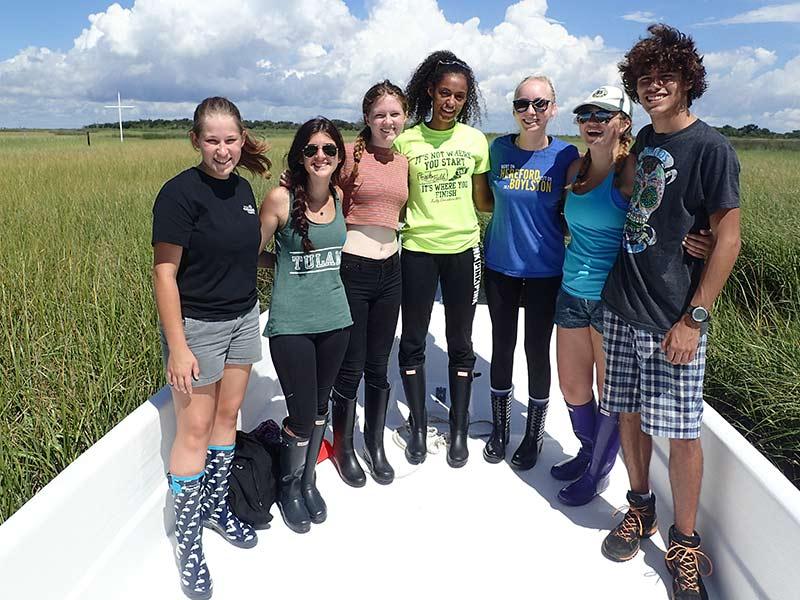Students preserve local Native American tribe’s history
Located about an hour and a half outside Greater New Orleans, Bayou Pointe-au-Chien is home to the ancestral lands of the Pointe-au-Chien Indian Tribe. In a course titled Indian Tribes Down The Bayou: Native American Communities of Southeastern Louisiana, Tulane University students completed several projects recording the tribe’s cultural heritage — documenting the group’s role in shaping the state's history.
Helmed by School of Liberal Arts adjunct professor Laura D. Kelley, the class is available for first-year students through the Tulane Interdisciplinary Experience Seminar program (TIDES).
“This is the second time that this particular course has been offered, but I’ve been working with the tribe for about 11 years,” said Kelley. “Hiding in plain sight, the tribe’s lands are on the front line of Louisiana’s disappearing coastline.”
The Pointe-au-Chien Indian Tribe is made up of approximately 680 members living in lower Lafourche and Terrebonne Parishes.
The unique service-learning opportunity transports students, many of whom are newcomers to New Orleans, from the classroom to the bayou to learn about tribal traditions firsthand.
While working on creating a database of the community’s oral histories, the students examined and archived letters and documents that tribal ancestors sent and received from the Bureau of Indian Affairs in Washington, D.C. in the early 20th century.
Students also created exhibits of their research, which will be featured permanently at the Pointe-au-Chien tribal community center as an educational resource for local schools and summer camp programs.
The projects will ultimately bolster the tribe’s petition for federal recognition, to be submitted next summer.
“The students are excited that the work they’re doing is going to contribute to the federal recognition petition and will be seen in the permanent exhibit,” said Kelley. “This experience is more than just a term paper or a grade for them.”

